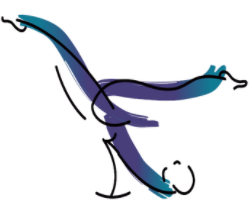Why You Should Start Your Fitness New Year's Resolutions Now
With the end of the year approaching fast, you may have begun to consider your New Year's resolutions. Let's take a second and reflect on resolutions gone wrong in years past. It's easy to tell yourself that you'll start fresh in January (and enjoy all that holiday eating while you can), but why not start now? After all, there's no time like the present! Here are a few reasons why kicking off your resolutions early can be immensely beneficial.
Develop a Routine
After the whirlwind of the holidays, some of us struggle to fall back into our routines. The kids have to get to school, work deadlines have to be met, the cold weather can be especially unmotivating. By developing a routine before the new year, you won't have to attempt to nail down new habits amid all of your other priorities. Your mind will already be expecting―and likely craving!―your workout time.
Enjoy the Empty Studio or Fitness Center
You're not alone we all like space in this post COVID world. Gym usage spikes in January with the influx of people trying to kickstart those fitness resolutions and the crowds can be intimidating and irritating. Rather than starting your resolution at the same time as everyone else, try starting it before the crowds arrive and enjoy the gym space comfortably.
Make a Plan, but Start Small
Prior planning helps us prioritize our health and ensure that we're making time to exercise. Write down when and where you'll be working out in advance, then choose what kind of exercise you'll be doing. If you're just beginning your fitness journey and don't know where to start, try a facility that has peaked your interest.
As you're developing your exercise plan, don't force yourself to make any huge changes right out of the gate. Try making smaller changes, like working out once a week and doing a "fun" workout (like playing kickball or taking the dog for a walk) once a week. Smaller adjustments will be easier for you to stay consistent with and consistency leads to bigger results.
Set Measurable Goals
Whether you want to perfect a Pilates move, run further or drop a few pounds, make sure you're setting numerical, measurable goals. For example, if you want to run a 10k, you could set a goal to run 2 miles by next month and four by the month after that. Measuring out your success will help you stay on track with your improvements and show you where you may need to work harder.
In addition, setting incremental goals will help you develop "checkpoints" for your larger goal. As you achieve each smaller, measured-out goal, you'll get a burst of excitement that will help carry you forward to your next checkpoint.
Find Your Support System
If you struggle to hold yourself accountable for finishing a workout or training day, try finding a support system to keep you going. This could be a fellow gym goer, a friend or a family member, or a teacher or trainer. Ask this person to check in and make sure you're sticking to your plan. You'll likely receive lots of helpful encouragement, too.
You can also look for small local groups, like running clubs or cycling groups, who work out together regularly. You may find it easy to bail on your individual workout, but if you tell your group or register for a class or session, you'll have a harder time backing out!


